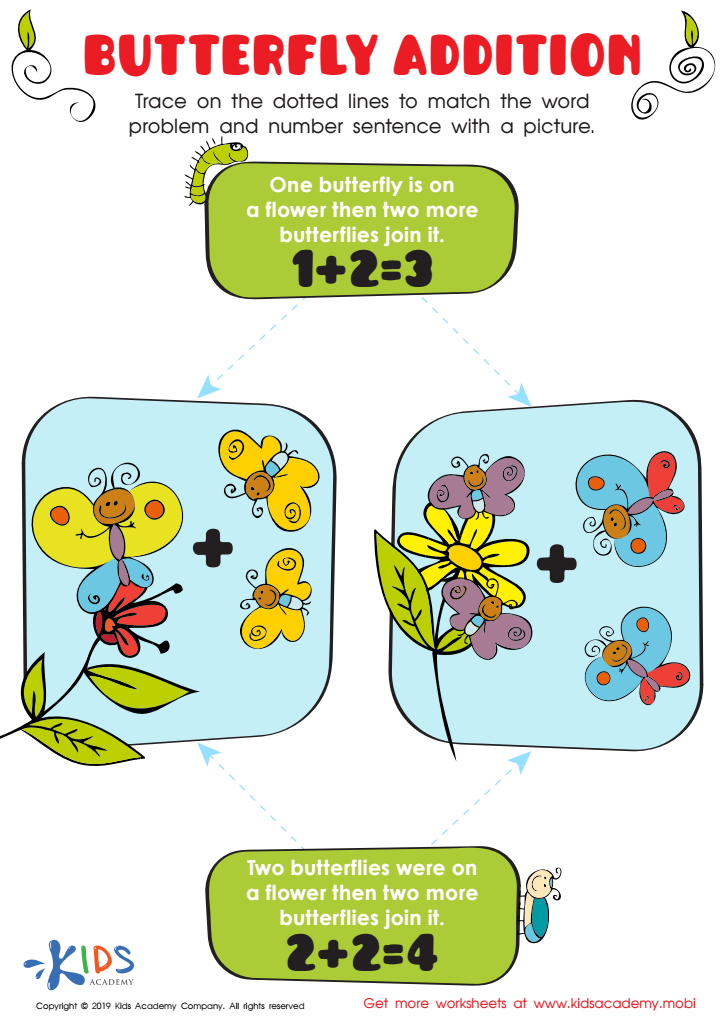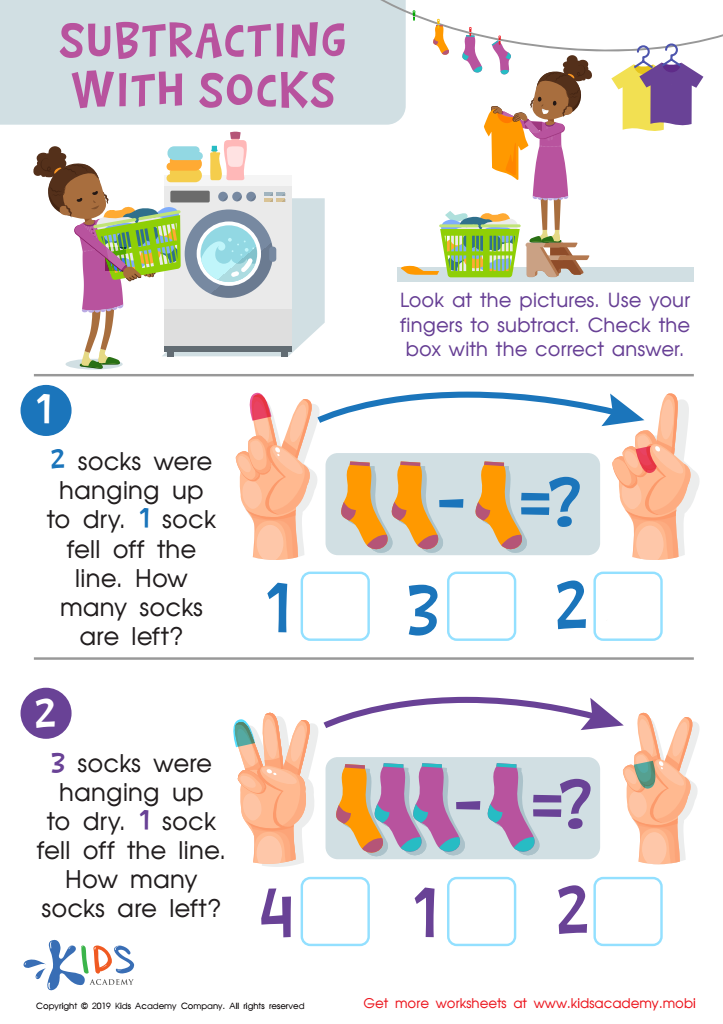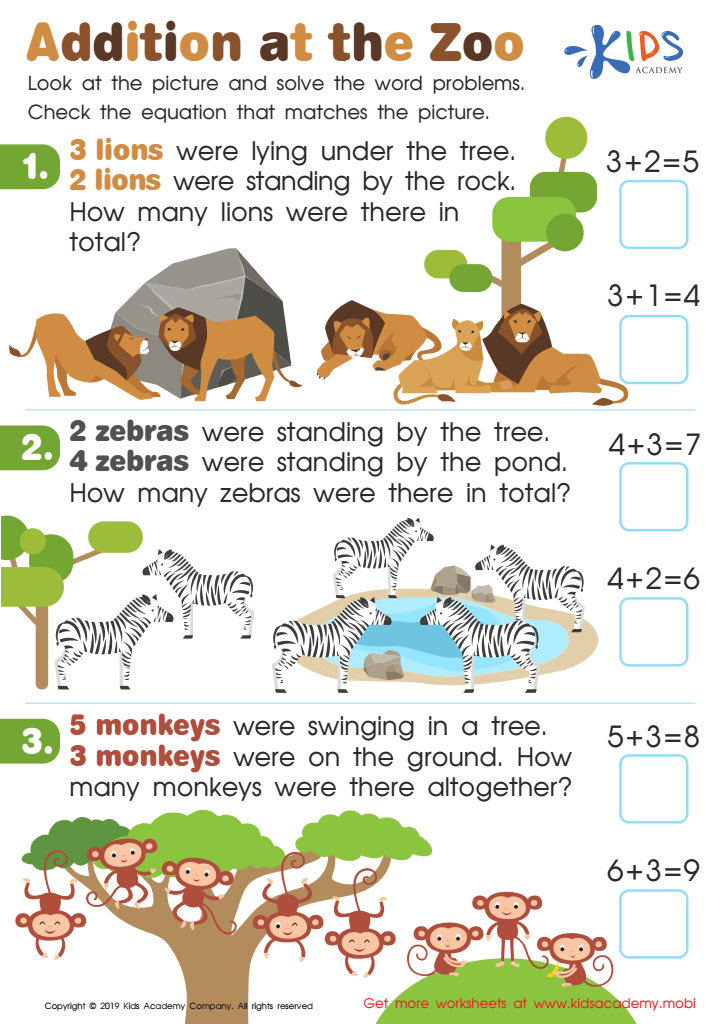Visual Learning Easy Word Problems Worksheets for Ages 7-8
3 filtered results
-
From - To
Discover our "Visual Learning Easy Word Problems Worksheets" specifically designed for children aged 7-8. These engaging and interactive worksheets utilize vibrant visuals to help young learners grasp essential math concepts through fun and relatable word problems. With a focus on visual learning, students can enhance their critical thinking and problem-solving skills while exploring everyday scenarios. Perfect for classroom use or at-home practice, these resources encourage a deeper understanding of mathematical principles in an enjoyable way. Make math fun and accessible for your child with our thoughtfully crafted worksheets that make learning an exciting adventure! Explore now to elevate their math skills!


Butterfly Addition Worksheet


Subtracting Socks Worksheet


Addition at the Zoo Worksheet
Parents and teachers should prioritize Visual Learning Easy Word Problems for children aged 7-8 because this approach enhances comprehension and engagement in mathematical concepts. At this age, children are developing critical thinking and problem-solving skills, and visual aids can significantly assist in making abstract concepts concrete.
Visual learning helps students understand relationships in math through charts, diagrams, or pictorial representations. For instance, showing addition or subtraction with visual representations, such as counters or number lines, allows students to grasp the underlying concepts better than with numbers alone. This concrete understanding fosters a more profound mastery of math, paving the way for more complex problem-solving in future studies.
Moreover, incorporating visual elements caters to diverse learning styles. Many children benefit from seeing information presented visually, allowing them to connect with the content and apply skills in real-life scenarios.
Encouraging early success with word problems fosters confidence in students, which is crucial during these formative years. By supporting visual learning strategies, parents and teachers create a rich learning environment, helping children cultivate a lifelong love for learning while strengthening their foundational math skills. Engaged and confident learners are more likely to excel not only in mathematics but across the curriculum.
 Assign to My Students
Assign to My Students




















